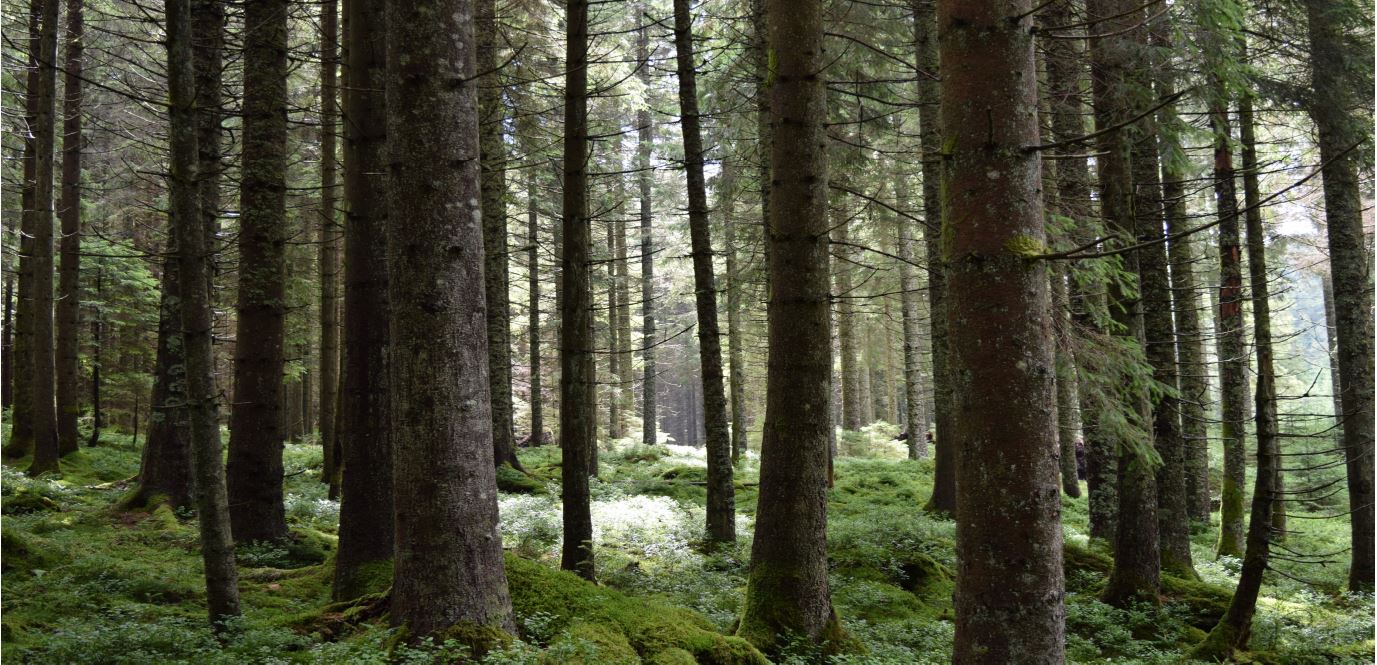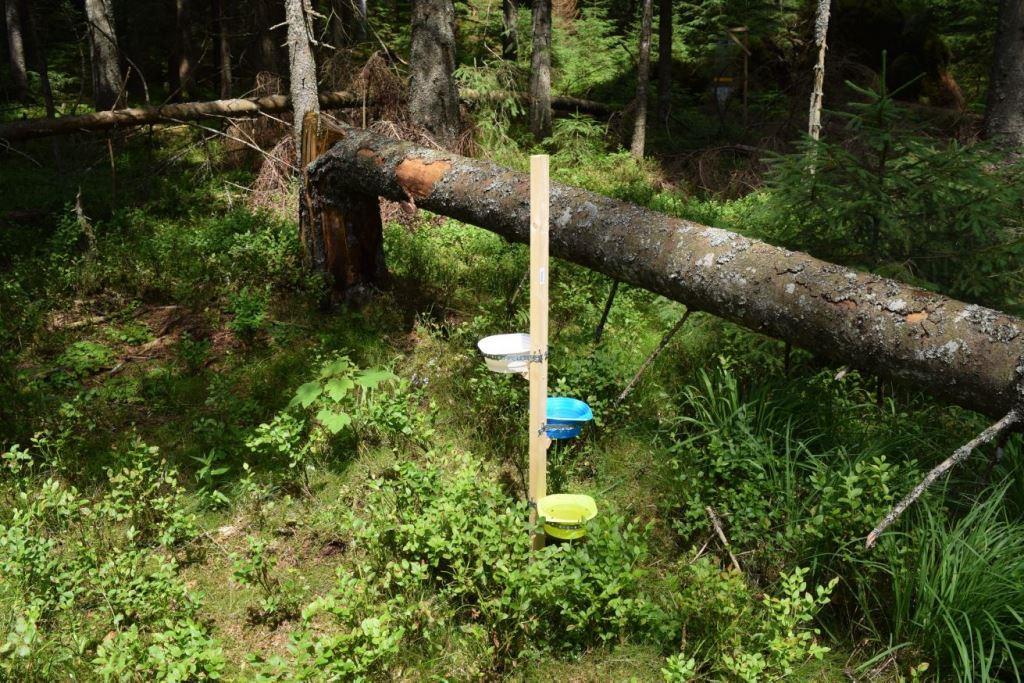Forests as habitat for threatened wild bees and wasps
Conservation suitability of light forests as habitat for threatened
wild bees and wasps in comparison to commercial forests
| |
Team: Prof. Dr. Alexandra-Maria Klein Dr. Veronika Braunisch (FVA) Dr. Jörn Buse (Black Forest National Park) | Duration: Januar 2019 - Dezember 2021 Funding:
scholarship |
Abundance and diversity studies of wild bees and wasps are primarily conducted in cultural/agricultural landscapes. This is due to their role as pollinators and natural pest control. However, so far there are only few studies showing how they are influenced by forest management. To gauge the negative and positive effects of different forest management practices, further studies are needed. The species composition of wild bees and wasps in forests is determined by management practices. Management practices and species composition of forest trees determines the light availability and the microclimatic conditions for the understory vegetation. The understory vegetation determines the food availability and probably has an impact on nesting quality. Reproductive success of wild bees and wasps is further limited by parasitism of the bees and wasps. The interaction of the different trophic networks is governed by management practices.
| |
| |
| Within the project, wild bees, wasps and their natural antagonists are gathered within the framework of a field experiment in the Black Forest National Park and throughout the Black Forest established by the FVA (Forstliche Versuchs- und Forschungsanstalt). The project involves three different categories of management regimes: a) protected forests b) managed forests and c) light forests. Within all categories variables of forest structure and microhabitat will be assessed.
| |
The project focuses on the following overarching research questions: How do forest management practices influence the diversity and trophic network of wild bees, wasps and their natural antagonists? Does thinning in forests influence bees, wasps and their trophic interactions? How do forest roads influence the occurrence of wild bees in forests? How does structural enrichment (deadwood) of forests influence bees, wasps and their trophic interactions. The data collected in the project will provide insights helping to create a basis about the role of forests for the conservation of wild bees and wasps. Different forest management practices are evaluated and help to actively enhance forest habitat for wild bees and wasps in the future. The FVA and the National Park supports the project and are actively involved in the discussion of the research questions, design, analyses and interpretation of results. |
Publications
- Eckerter, T., Erbacher, J., Wolf, W., Braunisch, V. & Klein, A.M. (2022): Verges along forest roads promote wild bees. Forest Science. online first. doi: 10.1093/forsci/fxac059. Link
- Eckerter, T., Braunisch, V., Buse, J. & Klein, A.M. (2022): Open forest successional stages and landscape heterogeneity promote wild bee diversity in temperate forests. Conservation Science and Practice 4: e12843. Link
- Eckerter, T., Braunisch, V., Pufal, G. & Klein, A.M. (2022): Small clear-cuts in managed forests support trap-nesting bees, wasps and their parasitoids. Forest Ecology and Management 509: 120076. Link
- Eckerter, T., Buse, J., Bauhus, J., Förschler, M.I. & Klein, A.M. (2021): Wild bees benefit from structural complexity enhancement in a forest restoration experiment. Forest Ecology and Management 496: 119412. Link
- Buse, J., Daume, N., Eckerter, T., Friesdorf, C., Fritze, M.A., Höfer, H., Kastner, L., Kaus-Thiel, A., Ludewig, H.H., Popa, F., Schlör, A. & Dreiser, C. (2020): New records of Leistus montanus Stephens, 1827 (Coleoptera: Carabidae) in Germany and a first insight into its habitat preference at local and landscape scale. Angewandte Carabidologie 13: 67-74. Link


